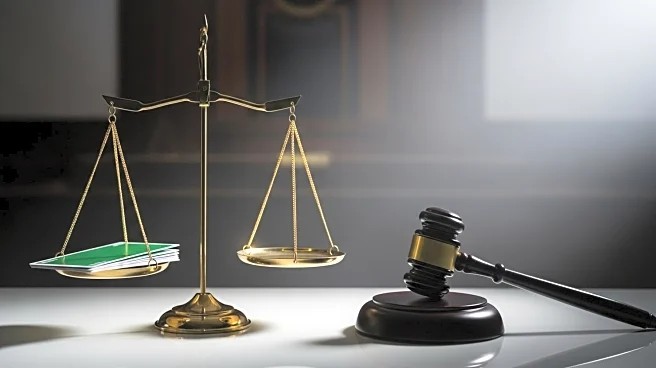What's Happening?
A U.S. immigration judge has ordered the deportation of Mahmoud Khalil, a 30-year-old lawful permanent resident and pro-Palestinian activist, to either Algeria or Syria. Khalil, a Columbia University student born in Syria to Palestinian parents and holding Algerian citizenship, was accused of failing to disclose material facts on his green card application. The case began with Khalil's detention in March 2025, which lasted over 100 days, during which he missed the birth of his child. A federal judge in New Jersey later released him, citing his detention as unconstitutional. Judge Jamee E. Comans ruled that Khalil willfully misrepresented facts related to his past activism and affiliations. Khalil's attorneys plan to appeal the decision, and a federal court order currently blocks his immediate removal while his civil rights lawsuit against the administration proceeds.
Why It's Important?
The deportation order against Mahmoud Khalil highlights significant tensions surrounding immigration policy and free speech in the United States. Khalil's case has become a focal point for debates on the treatment of activists and the potential conflation of political dissent with extremism. The ruling also underscores the broader implications of President Trump's policies, which aim to expel non-citizens involved in riots or violent demonstrations. This case could set a precedent for how similar cases are handled, affecting activists and immigrants who engage in political protests. The outcome may influence public perception of the administration's stance on civil liberties and its approach to immigration enforcement.
What's Next?
Khalil's legal team is preparing to appeal the deportation order, which could lead to a prolonged legal battle. The appeal process may involve further scrutiny of the evidence and arguments presented in the initial ruling. Meanwhile, Khalil's civil rights lawsuit against the administration will continue, potentially drawing more attention to his case and the broader issues it represents. The outcome of these legal proceedings could impact future immigration cases involving activists and shape the discourse on free speech and political activism in the U.S.
Beyond the Headlines
Khalil's case raises ethical and legal questions about the balance between national security and individual rights. It also highlights the potential risks faced by activists who challenge government policies, particularly those related to foreign policy and international relations. The case may prompt discussions on the role of immigration courts and the extent to which political motivations influence legal decisions. Additionally, it could lead to increased advocacy for the protection of activists' rights and the need for transparency in immigration proceedings.











